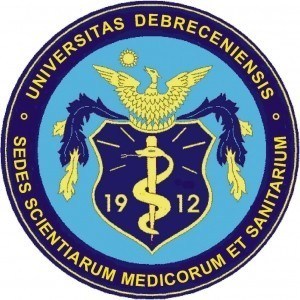The Bachelor of Science in Public Health at Rutgers University-Camden is a comprehensive undergraduate program designed to prepare students for a dynamic and impactful career in the field of public health. This program provides students with a strong foundation in the core concepts of health promotion, disease prevention, epidemiology, biostatistics, environmental health, healthcare systems, and health policy. Through a interdisciplinary curriculum, students are equipped with the analytical skills, critical thinking, and practical knowledge necessary to address complex health issues affecting diverse populations both locally and globally. The program emphasizes experiential learning, offering opportunities for internships, research projects, and community engagement that enable students to apply theoretical knowledge to real-world settings. Faculty members are dedicated experts in their fields, providing mentorship and guidance to foster academic growth and professional development. Graduates of the program are well-prepared to pursue careers in public health agencies, healthcare organizations, nonprofit organizations, research institutions, and pursue advanced studies in public health or related disciplines. The degree also aims to cultivate a sense of social responsibility and cultural competence, empowering students to become effective advocates for health equity and social justice. Designed to meet the increasing demand for skilled public health professionals, the Bachelor of Science in Public Health at Rutgers University-Camden offers a rigorous and enriching educational experience that prepares students to make meaningful contributions toward improving population health and well-being.
The Bachelor of Science in Public Health at Rutgers University-Camden is a comprehensive program designed to provide students with a strong foundation in the core principles and practices of public health. This program aims to prepare students for diverse careers in the public health field, including health promotion, disease prevention, health policy, and community health initiatives. Students will engage in an interdisciplinary curriculum that combines coursework in biology, sociology, psychology, environmental science, and health education, enabling them to understand the complex factors that influence health outcomes at individual, community, and population levels.
Throughout the program, students will explore key topics such as epidemiology, biostatistics, health behavior and promotion, health disparity, environmental health, and health policy and management. Emphasis is placed on developing critical thinking and analytical skills necessary to assess public health issues, design intervention strategies, and evaluate their effectiveness. Practical experience is integrated through internships, community engagement projects, and research opportunities, allowing students to apply theoretical knowledge in real-world settings.
The program also emphasizes cultural competence and ethical considerations in public health practice, preparing graduates to serve diverse populations effectively. Students are encouraged to participate in collaborative projects and interdisciplinary teams, fostering teamwork and leadership skills essential for careers in public health organizations, government agencies, non-profit sectors, or further graduate studies. Support services, including dedicated faculty mentorship and career counseling, are provided to help students achieve their academic and professional goals.
Graduates of the Rutgers University-Camden Public Health program are equipped to pursue advanced education or enter the workforce as public health practitioners, health educators, policy analysts, or research coordinators. The program’s flexible curriculum and strong community connections ensure that students are well-prepared to address current and emerging public health challenges, making meaningful contributions to the well-being of individuals and communities locally and globally.
Program requirements for the Bachelor of Arts in Public Health at Rutgers University-Camden include completing a minimum of 120 semester credit hours. Students must fulfill general education requirements, which encompass courses in communication, quantitative reasoning, the humanities, and social sciences, designed to provide a well-rounded liberal arts education. The core curriculum includes foundational courses in public health principles, epidemiology, health behavior, and health policy, totaling approximately 30-35 credits. Students are also required to complete a series of major-specific courses such as Introduction to Public Health, Community Health, Environmental Health, and Health Administration. Practical experience is a key component; therefore, students must engage in fieldwork, internships, or service-learning projects approved by faculty to gain real-world public health experience.
In addition, students are expected to complete elective courses within or outside the department, allowing specialization in areas such as global health, health communication, or health promotion. The program emphasizes interdisciplinary learning, encouraging students to take courses in related fields like sociology, psychology, biology, or statistics to enhance their understanding of health determinants. Students must also meet certain GPA requirements, generally maintaining a minimum cumulative GPA of 2.0 to remain in good standing. To graduate, students need to successfully complete all coursework, including the capstone project or thesis, which involves applying public health concepts to a real-world problem under faculty supervision. Additionally, students may be required to participate in seminars or workshops offered throughout the program to develop professional skills and networking opportunities in the public health sector. Finally, the program adheres to university policies on academic integrity and student conduct, ensuring all students meet the academic standards set by Rutgers University-Camden.
The Master of Public Health (MPH) program at Rutgers University-Camden offers a variety of financial aid options to support students throughout their graduate studies. Funding opportunities include federal financial aid programs such as the Free Application for Federal Student Aid (FAFSA), which allows eligible students to access grants, loans, and work-study opportunities. Rutgers-Camden also provides institutional scholarships and assistantships specifically for public health students based on academic merit, leadership qualities, and financial need. These scholarships are awarded on a competitive basis and may cover partial or full tuition costs.
Additionally, students may explore external funding sources, including state grants, private scholarships, and professional organization fellowships dedicated to public health careers. The university encourages students to apply early for these financial aid opportunities to maximize their chances of receiving support. Some students also pursue part-time employment both on and off campus to offset education expenses, with the university's Career Development Center providing resources and job placement assistance.
Rutgers University-Camden recognizes the importance of accessible higher education and strives to provide comprehensive financial planning services. The university's financial aid office offers personalized advising to assist students in understanding their options, completing necessary paperwork, and planning their budgets accordingly. For students enrolled in the MPH program, flexible payment plans may be available to facilitate manageable tuition payments over the semester. Furthermore, students are encouraged to reach out to faculty and program administrators for guidance on securing fellowships, grants, and other funding sources specific to public health studies. Overall, Rutgers-Camden aims to minimize financial barriers and promote diversity and inclusion within its public health graduate programs through its various financial support initiatives.
The Bachelor of Science (B.S.) in Public Health at Rutgers University-Camden is designed to prepare students to address complex health issues facing diverse populations. The program emphasizes an interdisciplinary approach, integrating biological, behavioral, environmental, cultural, and policy perspectives to promote health and prevent disease. Students gain a comprehensive understanding of public health principles, including epidemiology, biostatistics, health promotion, and health policy, which equip them to work effectively in various health-related settings such as community organizations, healthcare institutions, government agencies, and research institutions.
The curriculum combines core coursework with opportunities for specialization and practical experience. Students may engage in internships, service-learning projects, and research activities that enhance their understanding of public health challenges and solutions in real-world contexts. The program fosters critical thinking, analytical skills, and ethical considerations necessary for effective public health practice. In addition, the program prepares students for graduate studies in public health or related fields, offering a solid foundation for advanced academic and professional pursuits.
Faculty members involved in the program are experienced professionals and researchers dedicated to mentoring students and advancing public health knowledge. The university supports students through various resources, including dedicated advising, career services, and partnerships with local health organizations. Upon graduation, students are well-positioned to pursue careers in health education, health communications, epidemiology, environmental health, or public health policy, making meaningful contributions to improving community health outcomes. The program reflects Rutgers University-Camden's commitment to addressing public health disparities and promoting health equity across diverse populations.










